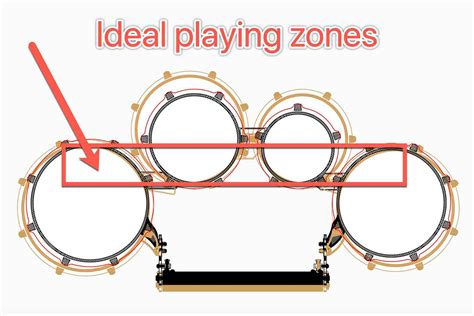How To Read Quad Music
Ronan Farrow
Apr 02, 2025 · 3 min read

Table of Contents
How to Read Quad Music: A Beginner's Guide
Reading quad music, also known as four-part music, can seem daunting at first. However, with a little practice and understanding of basic music theory, it becomes much easier. This guide will walk you through the essential steps and concepts to help you decipher and appreciate the beauty of four-part harmonies.
Understanding the Basics of Four-Part Music
Quad music typically involves four distinct vocal parts: soprano (highest), alto (second highest), tenor (second lowest), and bass (lowest). Each part has its own independent melody line, yet they work together to create a rich and harmonious texture. Understanding the relationship between these parts is key to reading quad music effectively.
Key Elements to Focus On:
-
Clefs: Familiarize yourself with the different clefs used for each part. Soprano and alto parts commonly use the treble clef, while tenor and bass parts use the bass clef (though tenors sometimes use the treble clef in an octave lower).
-
Note Values: Pay close attention to note values (whole, half, quarter, eighth notes, etc.) to understand the rhythm and timing of each part. Accurately interpreting note values is crucial for correct performance.
-
Key Signatures: The key signature at the beginning of the piece indicates the sharps or flats that are in effect throughout the music. Understanding key signatures helps you to identify the notes within the scale and understand the overall tonality.
-
Time Signatures: The time signature, usually located at the beginning of the piece, dictates the rhythmic structure. It tells you how many beats are in each measure and what type of note receives one beat. For example, 4/4 means four beats per measure, with a quarter note receiving one beat.
-
Accidentals: Be aware of accidentals (sharps, flats, and naturals) that modify the pitch of individual notes. These can significantly affect the harmony and should be carefully observed.
Practicing Your Reading Skills
Reading quad music effectively requires consistent practice. Start with simpler pieces that have clear melodic lines and fewer complex harmonies. Gradually increase the difficulty as your skills improve.
Helpful Tips:
-
Start with one part at a time: Begin by focusing on just one vocal part, perhaps the soprano, and practice reading its melody line independently.
-
Listen to recordings: Listening to recordings of the piece you are reading can help you to internalize the melodic and harmonic relationships between the different parts.
-
Use a pencil: Use a pencil to lightly follow each note as you read and practice. This can greatly help with your comprehension.
-
Sing along: If possible, sing along to each part as you follow along with the music. This is an excellent way to internalize the harmonies and rhythms.
Beyond the Basics: Advanced Techniques
As your proficiency increases, you will encounter more complex aspects of four-part music, such as:
-
Inversions: Understanding chord inversions will be crucial for fully grasping the harmonies.
-
Passing tones and neighbor tones: Identifying these non-harmonic tones will enhance your understanding of musical phrasing and expression.
-
Cadences: Recognizing different types of cadences (perfect, imperfect, plagal, etc.) will help you to understand the overall structure and harmonic progression of the piece.
By focusing on the fundamentals, practicing regularly, and gradually tackling more challenging pieces, you will be well on your way to mastering the art of reading quad music and appreciating its rich and intricate harmonies. Remember, patience and perseverance are key!
Featured Posts
Also read the following articles
| Article Title | Date |
|---|---|
| How To Take Good Senior Pictures | Apr 02, 2025 |
| How To Reset Def Sensor Duramax | Apr 02, 2025 |
| How To Secure A Generator From Theft | Apr 02, 2025 |
| How To Remove Domestic Violence Charges From Record | Apr 02, 2025 |
| How To Transport Beehives | Apr 02, 2025 |
Latest Posts
-
How Can I Block Facebook On My Phone
Apr 03, 2025
-
How Can I Become A Midwife Assistant
Apr 03, 2025
-
How Can I Avoid Paying Nj Exit Tax
Apr 03, 2025
-
How Can A Small Church Impact The Community
Apr 03, 2025
-
How Can A Cxo Get Started On Social Media
Apr 03, 2025
Thank you for visiting our website which covers about How To Read Quad Music . We hope the information provided has been useful to you. Feel free to contact us if you have any questions or need further assistance. See you next time and don't miss to bookmark.
